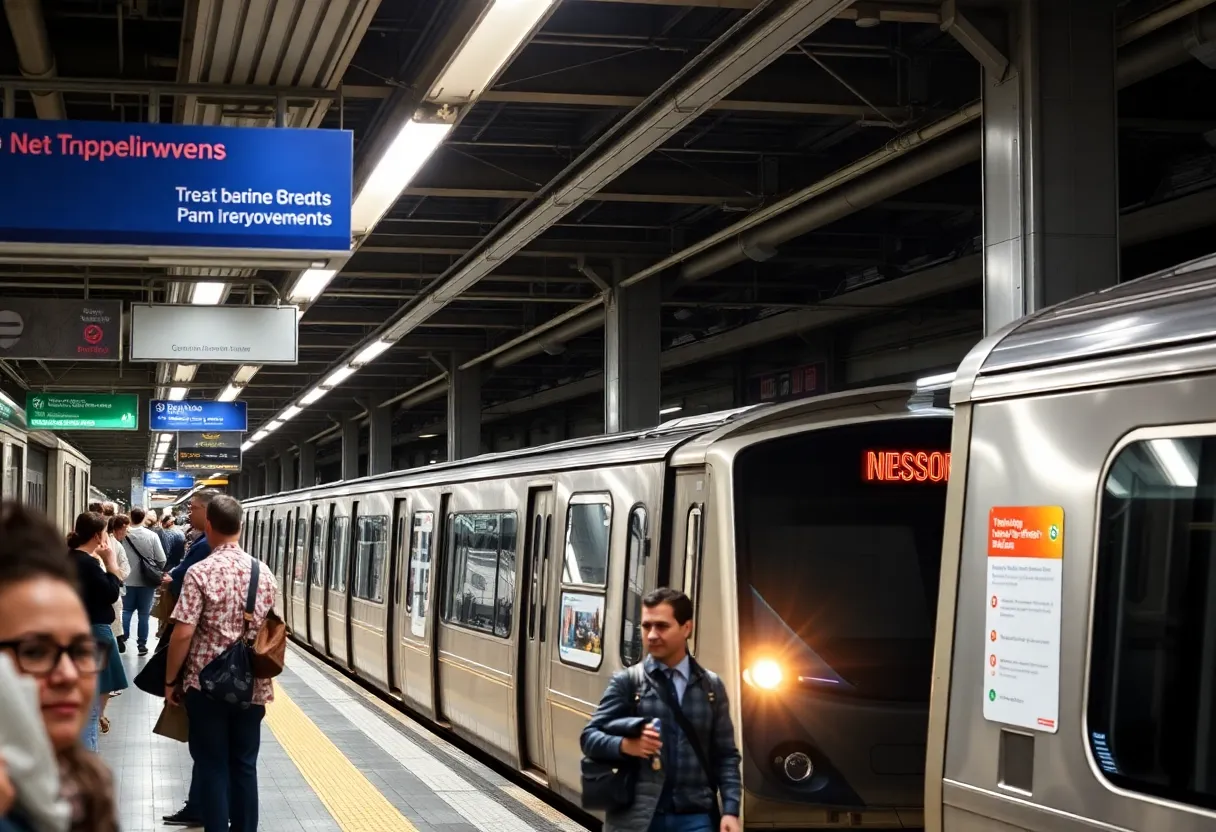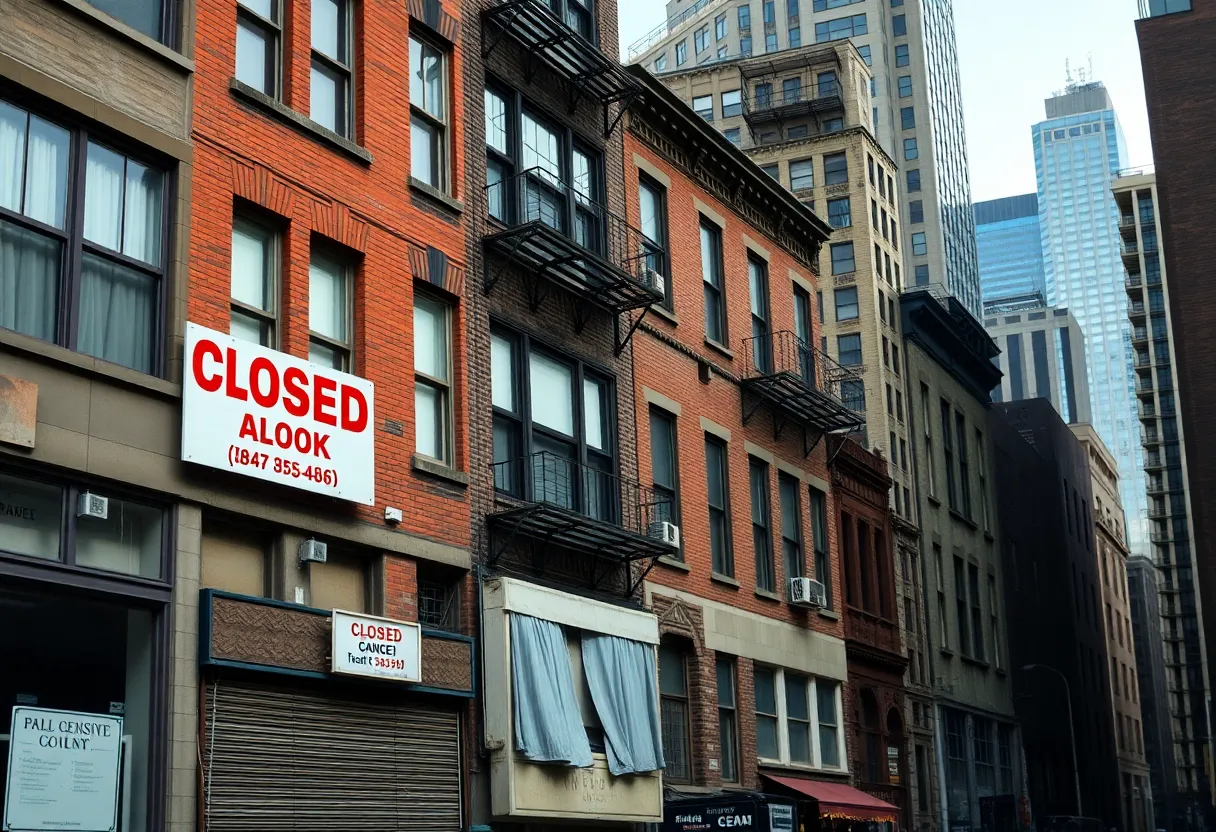News Summary
New York State has approved a historic $68.4 billion capital plan for the MTA aimed at modernizing transit infrastructure over the next five years. The plan focuses on addressing maintenance and upgrade needs across subways, buses, and commuter railroads, while also relying on federal funding that faces uncertainty. Congestion pricing is a key component, generating revenue to support vital improvements as New York navigates federal challenges.
New York State has approved a historic $68.4 billion capital plan for the Metropolitan Transportation Authority (MTA), a move intended to strengthen and preserve the integrity of the city’s transit systems over the next five years. This capital plan marks the largest investment in the MTA’s history and aims to address long-standing maintenance and infrastructure issues across the subway, bus system, and commuter railroads.
The new funding agreement, announced by Governor Kathy Hochul on a recent Monday night, comes in the wake of considerable federal uncertainties. A significant portion of the plan—specifically $14 billion—is reliant on federal funding from the Trump administration, which has threatened to withhold monetary support if congestion pricing remains enforced. The complexities surrounding this funding highlight the ongoing challenges facing New York’s transportation systems.
The primary focus of the MTA’s capital plan is to repair and upgrade components of the transit infrastructure that have been neglected. Significant improvements include acquiring new trains and buses, replacing equipment that is nearly a century old, and enhancing accessibility for riders with disabilities and families. The plan aims to avert a recurrence of the severe transit disruptions that occurred during the “Summer of Hell” in 2017.
Over 90% of the proposed five-year budget is earmarked for “state of good repair” projects that are designed to enhance service reliability and reduce transit delays. This large-scale investment underscores the state’s commitment to modernizing its public transportation infrastructure in order to meet the demands of millions of daily riders.
The implementation of congestion pricing in New York City has emerged as a crucial financial element for the MTA, generating approximately $159 million in its first three months. This revenue stream is intended to support $15 billion of essential transit improvements, including the introduction of new electric buses and upgrades to subway systems. Despite a slight shortfall from the $160 million estimate for the first quarter, revenue collection displayed strong monthly trends, with particularly robust numbers reported in March.
Congestion pricing charges drivers $9 to enter Manhattan’s Central Business District during peak hours, with fees varying based on time and vehicle type. The effects of this pricing program have been notable, resulting in decreased traffic levels and improved travel conditions within the congestion zone. Since the initiative’s launch, around 5.8 million fewer cars entered the congestion zone than anticipated, translating to an 8-13% reduction in overall traffic. Specifically, April saw a 12% traffic reduction, which subsequently led to shorter travel times into Manhattan and increased hotel stays and retail spending.
In terms of safety, traffic-related injuries within Manhattan’s congestion zone have also significantly declined, with the city reporting a 13% drop in car crashes since the tolls were enacted. These outcomes demonstrate the positive correlation between congestion pricing and improved urban mobility and safety.
However, the continued viability of congestion pricing is under threat, as the Trump administration seeks to eliminate the program and subsequently jeopardize additional transit funding. The federal government’s initial approval of this pricing scheme was granted under the Biden administration, but legal disputes persist as the city and the MTA aim to counter attempts to overturn this regulatory decision.
Public reception to congestion pricing has been mixed, with some residents supporting the decrease in traffic and others expressing concerns over the financial impact on drivers. Advocates argue that the program promotes greater use of public transit while simultaneously enhancing overall traffic conditions in the city.
In summary, as New York State navigates the complexities of its ambitious $68.4 billion MTA capital plan while encountering federal challenges to its congestion pricing strategy, the future of public transportation in the city will rely heavily on both local and federal support. The MTA has projected generating roughly $500 million in revenue from congestion pricing for the current year, reflecting its potential as a sustainable funding mechanism for critical infrastructure improvements.
Deeper Dive: News & Info About This Topic
- AM New York
- NDTV
- Gothamist
- ABC News
- New York Times
- Wikipedia: Congestion Pricing
- Google Search: Congestion Pricing New York
- Google Scholar: Congestion Pricing
- Encyclopedia Britannica: Congestion Pricing
- Google News: New York Congestion Pricing








